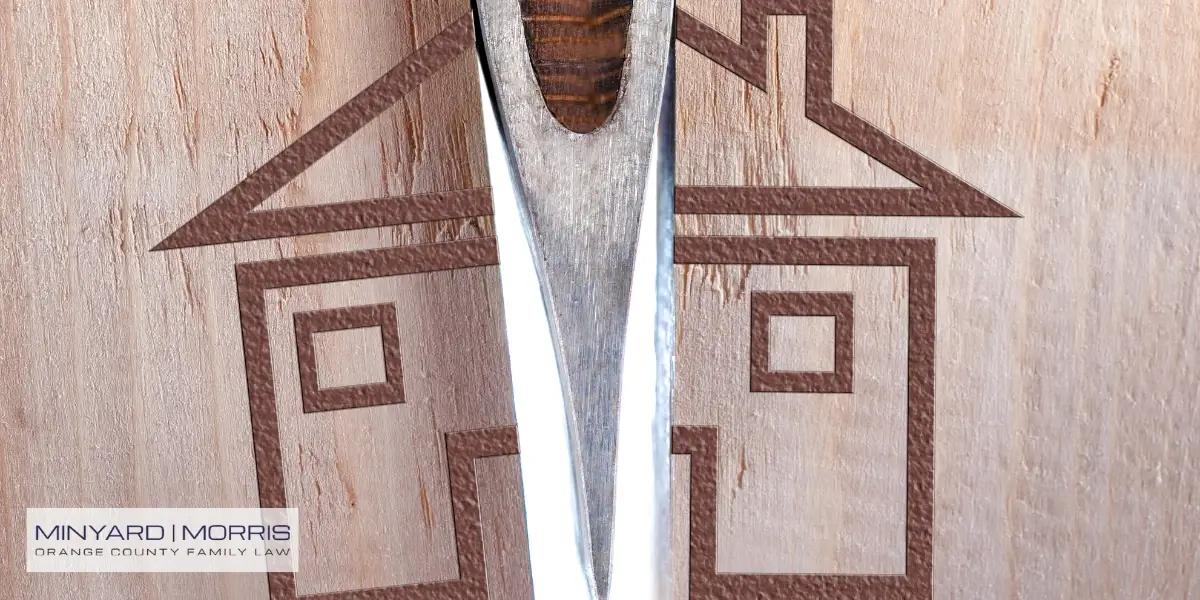Laguna Hills Property Division Lawyer
Laguna Hills Property Division Attorney
Division of property is often the most contentious issue in a Laguna Hills divorce. Assets and debts embody decades of effort and sacrifices, leading to financial security. As you prepare for divorce, you need a Laguna Hills property division lawyer who will aggressively protect your rights. At Minyard Morris, we understand what is at stake, and we are committed to providing our clients with the focused representation they deserve.

About Minyard Morris
Choosing to hire a property division attorney stands as one of your most crucial choices during divorce proceedings. Self-dividing complex property without professional legal advice is a recipe for errors that cannot be undone. The lawyers at Minyard Morris can assist you in the legal process.
For over almost half a century, we have limited our practice to family law cases filed in Orange County. This narrow focus provides a unique advantage. We know the local rules, customs, and the quirks of each judge who may be assigned to your case. The lawyers at Minyard Morris have over 350 years of combined experience, but our real strength lies in the way we work together.
Each week, all of our lawyers attend firm-wide strategy meetings. We discuss the latest complex cases, share ideas, and brainstorm creative solutions. That means when you choose one of our Laguna Hills property division attorneys, you gain the knowledge and skill of the entire firm.
Understanding Property Division in California
California is a community property state. Community property is any property that is acquired during the marriage that does not fall into one of the exceptions to the community property system. According to community property rules, each spouse owns half of all marital assets. In reality, it’s rarely that simple.
Disputes may arise over various issues, such as what is considered community property or separate property, the value of property, especially high-value assets, such as real estate, commingled property, and dividing debts. Understanding how property division laws apply to your unique situation is important to making sure you have financial stability after divorce.
One of the main issues is in determining the difference between community and separate property. Community property is any property that was acquired during the marriage, such as:
- Income earned during the marriage
- Joint bank accounts
- Real estate
- Rental property
- Vehicles
- Homes
- Mortgages
- Credit card debt
- Digital assets, including cryptocurrency
Separate property is property that is not subject to division in the event of a divorce. This is typically property that was acquired outside of the marriage. Some examples of separate property include:
- Inheritances
- Gifts
- Property acquired before the marriage began
- Assets acquired after the date of separation
- Personal injury awards
- Certain debts, such as illegal gambling debts
One issue that arises is the commingling of community and separate property. For example, if one spouse puts down a down payment on a house purchased during marriage with separate property, he or she may be entitled to reimbursement.
What Happens When You Can’t Agree
The court will decide for you how property is divided if you and your spouse are not able to reach an agreement. Judges in Orange County and surrounding areas, such as Laguna Hills, will consider all of the evidence, testimony, and laws, including community property law.
The law calls for equal division. However, battles are sometimes fought over whether an asset is separate property, whether the valuation is equitable, or whether a debt is owed by just one spouse. A favorable result is much more likely with effective legal representation in contested property division cases.
Additional Considerations
The CDC counted 2,041,926 marriages in the United States. This resulted in a marriage rate of 6.1 per 1,000 population. The CDC counted 672,502 divorces in the United States (45 states, not including California, reported) and a divorce rate of 2.4 per 1,000 population. The divorce rate in Orange County is higher.
Pets are important family members for many Laguna Hills families. California law now permits the court to award pets in a manner that differs from traditional property, focusing on pet custody arrangements that serve the animal’s best interests. One or both spouses can request that the court determine ownership or even joint physical custody of the family pet. Judges weigh many factors when making this determination, including who provides day-to-day care, access to veterinary care, and the overall well-being of the pet.

FAQs
Is Furniture Considered an Asset in Divorce?
Yes, furniture is an asset in a divorce. In California, if the household furniture was acquired during the marriage, it is usually considered community property, and it is divided equally. However, the spouses may come to an agreement on who gets which pieces. If not, the court may order it to be appraised and divided based on value. Sentimental value can complicate furniture division, so it’s helpful to document it and negotiate in good faith.
How Do I Calculate Property Division in a Divorce?
In order to calculate a property settlement, one has to identify all of the assets and debts. One also needs to properly categorize those assets and debts as either community property or separate property. One must also be sure to value those assets and debts correctly. Community property is divided 50/50, while separate property remains with its owner.
How Do I Split the Value of a House in Divorce?
Division of value is usually accomplished by establishing the fair market value of the house, subtracting any outstanding mortgage, and dividing the remaining equity. One spouse may pay the other spouse to take full ownership, or the house may be sold, with the proceeds divided between the spouses. Courts will also consider the reimbursement claims of either spouse who paid separate funds toward the acquisition or improvement of marital property.
How Do I Split a House in Divorce Without a Lawyer?
If spouses wish to divide a home without a lawyer, they must cooperatively agree on the value of the home, the division of equity, and whether a spouse will retain the home or it will be sold. Mediation may help maintain cooperation. Homeowners who divide their property without legal counsel face potential mistakes in valuation that can lead to adverse tax results or improperly prepared documents affecting their legal rights.
Hire a Property Division Lawyer
If you are going through a divorce, hire a property division lawyer who can help you in this important legal process. Minyard Morris can help. Contact us today to get started.



